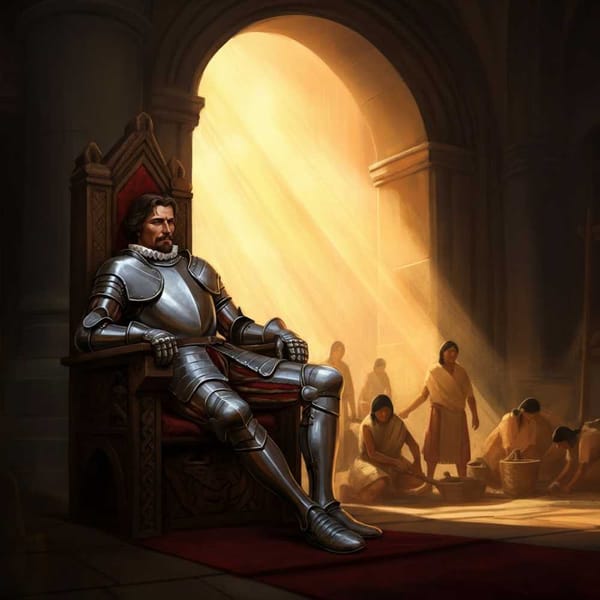Drug trafficking forces families to flee their place of origin in Michoacán
The displacement of people in Michoacán is a problem that has not stopped, however, no one knows how acute it is at this time.

The displacement of people in Michoacán is a problem that has not stopped, however, no one knows how acute it is at this time. No official body has figures, but they have warned that violence has accelerated the forced "expulsion" of dozens of families from rural and urban areas. Tierra Caliente continues to be the "red light" where Los Viagra are fighting for territory with the Jalisco Nueva Generación Cartel, although it is not the only region.
The Mexican Commission for the Defense and Promotion of Human Rights is the body that has the most up-to-date statistics on the phenomenon. In 2017, 1,350 displaced persons were reported; 1,200 moved to Aguascalientes fleeing from the grip of the drug trafficker. The only reference that the agencies have is that they were Purepecha indigenous, while another 150 people from Nueva Italia took refuge in Tijuana. They were whole families.
The people who are "expelled" do not come to report to the Public Prosecutor's Office or other instances of help and they want to get away from the problem, out of fear and due to other circumstances. The Victim Assistance Commission recognizes that it is a problem that is still present, that hurts and hurts, but that is complex to address and requires the intervention of all sectors.
Michoacán is in fifth place nationally, after Chiapas, Guerrero, Sinaloa and Oaxaca. Activists such as the founder of the self-defense movement, Hipólito Mora Chávez, and priest José Luis Segura Barragán, who live in the Tierra Caliente region, acknowledge that their attention is one of the enormous pending of the authorities and that it is now becoming more acute. the dispute that exists between cartels and that leaves families in the middle. Even, the problem has been such that they follow the "uprisings" and even the burning of houses of those who are reluctant to cooperate.
On the other hand, the first report of a research project called "Paramilitary Organizations, Groups of Self-Defense Groups and Forced Internal Displacement in Mexico 2006-2013" was prepared by Dr. Luz María Salazar Cruz states that the forced internal displacement in Michoacán amounts to 21 thousand. inhabitants in that period.
A weapon that forced internal displacement in the entity for the period was directly linked to the context of violence. Thus, the municipalities where the movements have originated in the entity are Acuitzio, Aguililla, Angangueo, Atizapán, Aquila, Arteaga, Buenavista, Carácuaro, Cherán, Chinicuila, Coahuayana, Coalcomán, Ecuandureo, Gabriel Zamora, Hidalgo, Huetamo, Jiquilpan, Juarez, La Huacana.
As well as La Piedad, Lagunillas, Lázaro Cárdenas, Los Reyes, Nuevo Urecho, Peribán, Sahuayo, Susupuato, Tacámbaro, Tancítaro, Tanhuato, Tarímbaro, Tepalcatepec, Tiquicheo by Nicolás Romero, Tumbiscatío, Turicato, Tuzantla, Tzitzio, Uruapan, Vista Hermosa, Yurécuaro, Zacapu, Zamora, Zitácuaro. The report was presented in the Senate of the Republic.
The president of the State Commission of Human Rights, Víctor Manuel Serrato Lozano urged the authorities to recognize the existence of this phenomenon in the country and the entity so that the Mexican State, establish the mechanisms for the attention and solution to the conflicts that originate it; but also to ensure the rights to health, education, food, housing and employment of displaced persons. The problem is not only concentrated in the Tierra Caliente, but other areas such as Aquila also reproduce these behaviors.
Seeking political asylum in the United States
The most recent data dates back to 2017 when the Mexican Commission for the Defense and Promotion of Human Rights prepared a report, which is taken as a reference by the authorities, where the existence of the displacement of people is evidenced. It was in December when the arrival in Tijuana of hundreds of people was reported. "Families flee violence generated by organized crime and drug trafficking groups in their communities of origin."
The families emigrated to the United States border to request asylum. Despite temperatures of 10 degrees Celsius or less, displaced people were sleeping in the streets around the esplanade of the National Institute of Migration. They were mothers with their children, children, young people, elderly people, and men. It is not known if they returned to Apatzingán or Nueva Italia, where they were originally from, rehearse the reports that today are the subject of analysis.
In another episode, around 300 indigenous families decided to move because of the violence generated in the state to Aguascalientes. "In the case of the Purépecha, many are displaced by violence and express their desire to stay for fear of taking their boys (...) They take them to work-organized crime-in the activities they perform", re María del Carmen Wuotto González, president of the association MAIS, Commonwealth of the America India Solar of that state.
Those indigenous families arrived in Aguascalientes and later some have emigrated to other states to look for some source of sustenance. It is a contingent of 300 families, that is, 1,200 people. It is also not known if they returned to their places of origin, but they are not the only ones: the priest José Luis Segura Barragán warned that in recent times the dispute between cartels is causing that problem to resurface in communities of the municipalities of Apatzingán and Buenavista.
The most recent cases
I do not have updated numbers, but the problem has been presented in the communities of El Alcalde, El Paso del Capire, and Las Caguingas. In this last place, the criminals burned the houses, "confessed the priest, who said that for those who do not know Apatzingán's problem could seem a novelty, however, it is the daily life of the families that inhabit these lands that currently they are disputed by Viagra.
This version was ratified by Hipólito Mora Chávez, who in 2014 raised in arms the inhabitants of the holding of Felipe Carrillo Puerto, in Buenavista. "The truth is that the situation is complicated. They go wherever the criminals go, in front of the eyes of the Mexican Army. On February 2, 5 people disappeared, among them, a nephew, and we know absolutely nothing about them. That is the reality daily here and the only thing they are sowing is terror and fear in the families. "
Buenavista is located within the limits of Michoacán and Jalisco. That territory is currently disputed between Los Viagra and the Cartel Jalisco Nueva Generación. Most of the territory is held by the cartel led by Nemesio Oseguera. "The municipal police is at their service," said Mora Chavez, reiterating that he has no fear of making this complaint, as he said he is already in the sights of other groups to whom he is bothering for his statements. "Families are running away from this," he said.
In the report of the forced internal displacement in Mexico where the State Commission of Human Rights collaborated, rere that the situation of insecurity in Michoacán has caused social havoc among those who find this problem. "According to the data collected, he realizes that in many inhabitants there is a desire and a willingness, in the face of fear and collective uncertainty, to change residence and abandon their places of origin, subjects of constant violence and insecurity."
It also states that the hostilities have motivated hundreds of people and families to move to the interior of the country and to the United States. It addresses specific cases that have been documented by staff of the Regional Vice Province of Lázaro Cárdenas and recognize that there are no guidelines or planning to prevent the causes and to pay attention to the implications of displacement.
This series of actions undertaken by various government agencies in favor of the displaced population includes some other national institutions and agencies that have incorporated displacement attention into their laws and programs, "the organization states. The displaced flee their communities as a result of criminal acts and violations of their human rights committed against them or their families; for the fear of being deprived of life in a climate of violence and impunity, "acknowledged the Michoacan ombudsman.
What the ECHR has documented
In 2013 the ECHR gave sight to the National Commission of Human Rights (CNDH), on the case of at least 200 displaced families in the municipalities of Aquila, Coalcomán, and Chinicuila, after the statements by the mayor of Coahuayana, Andrés Cárdenas Guerrero, who made this situation public; before the arrival of people coming from those demarcations; part of this group emigrated to the neighboring state of Colima.
Due to these facts, the CEDH integrated the files 365/2013, 376/2013, and 386/2013 in the Regional Visiting Office of Lázaro Cárdenas, which were sent to the CNDH as a matter of competence. In the case of Michoacán families from the municipality of Aquila who took refuge in the state of Colima, in the State Commission of Human Rights of that state, on August 14, 2013, the complaint file was opened CDHEC / 586/13 for abuse of authority, right to legality and violation of the right to physical integrity against elements of the Federal Police.
Cristina Cortés Carrillo, commissioner of attention to victims in the state, admitted that the phenomenon is not recognized as such and because it is not affected in public policies so that it can be treated with dignity. "We find that those who have been doing the most formal investigations are civil associations and the academy. They are focused on addressing the problem, and they are the ones who give the data of Michoacán. "
He acknowledged that the phenomenon is not easy to address, and even stressed that displaced people could help institutions by coming forward to denounce. He admitted that the evaluation instruments must be generated and he saw a great challenge to pay attention to the phenomenon that is real and that continues to be presented. He asked for the involvement of the municipalities and institutions. "The academy is already documenting."
The mayor of Buenavista, also displaced
However, Hipólito Mora Chávez denounced that even the authorities themselves are displaced. He said that the mayor of Buenavista, Gordiano Zepeda, does not reside in the town and since Morelia is operating. "He comes two or three days, but he is not here." He came to govern that town, after the assassination of the elected president, Eliseo Delgado. The history of the death of ediles in that area also it's new.
But the displaced not only glance towards the outside of the state, but also to other cities like Morelia. "If you ask a taxi driver, he arrived from Apatzingán because there were no conditions to live there," said Cristina Cortés Carrillo, explaining that the issue should be addressed with total seriousness, and it is a task that must be done by all authorities.
The priest José Luis Segura sees the problem very serious in the communities that belonged to the control of the Knights Templar and that today "have no owner". The issue has been little touched, reproaches, but it shows that the expulsions have taken place violently for two and a half years. "In some moments it has intensified, and now it continues".
It's like a ghost, everyone talks about it, but nobody has it documented, "say families who have been victims of displacement and have had to flee so as not to put their lives at risk. Although they admit that the danger is everywhere, and if they want to do something to them, the criminals do not rest until they get it.
The other "expulsion"
However, not only have they been expelled by the violence that occurs in the Tierra Caliente, but by "uses and customs". At the beginning of the year, in the community of La Cofradía, in Aquila, parents were chained and imprisoned by orders of the communal authority of the Nahua people after opposing the closure of the bilingual primary school. They can no longer reside there.
The facts were recorded inside the Benito Juarez Primary School when by order of the authority, elements of the Community Police carried out this action against the nonconformists, and no authority has been able to do more. There is "closure" among the inhabitants. The State Commission for Human Rights also documented that fact and followed it up, but it has been complex to get involved.
Source: La Voz de Michoacán




